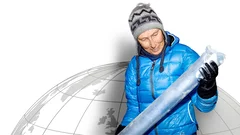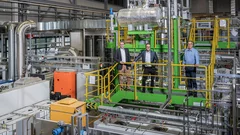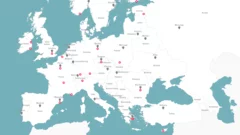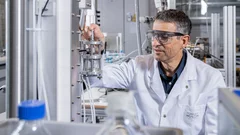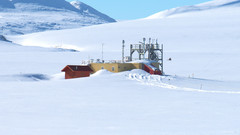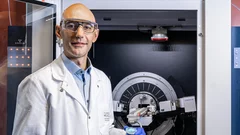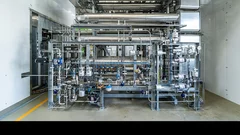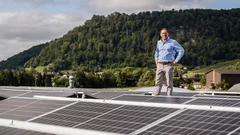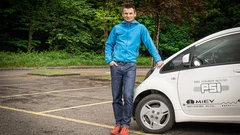Energy and Climate
The energy research performed at PSI focuses on processes that can be used in sustainable and safer technologies, ideally with minimal CO2 emissions. The main emphasis is on renewable energy sources. The ESI (Energy System Integration) platform enables research and industry to test solutions for integrating renewables into the existing energy supply. Another focus in this area is the safer use of nuclear energy. These activities are supplemented by analyses giving a comprehensive assessment of energy systems. PSI scientists in the Energy and Environment division study the chemical processes that take place in the atmosphere.
Find out more at: Overview Energy and Climate
“More objectivity would be helpful”
The current energy debate could do with more facts and less gut feeling – argue Thomas J. Schmidt, renewables expert, and Andreas Pautz, nuclear energy specialist.
Collecting ice cores before it's too late
PSI researcher Theo Jenk talks about the challenges of ice core research during the climate change crisis.
Many paths lead to the energy future
How can Switzerland achieve the energy transition? PSI researchers provide answers with a unique computer model.
“A race against time”
At a conference the international ice core science community discusses the latest developments in their field.
The Jungfraujoch aerosol detectives
Aside from its stunning landscape, the Jungfraujoch also provides an ideal location to research the impact of aerosols on our climate.
A warm intrusion in the Arctic causes extreme pollution levels
Surprising data about pollutants in the Northern Hemisphere
Combining forces for the energy transition
The Paul Scherrer Institute PSI and the start-up AlphaSYNT are piloting a new approach for storing energy in the form of methane gas.
European map of aerosol pollution can help improve human health
Researchers have measured and determined the sources of aerosol pollution at 22 locations in Europe.
Power-to-gas system for energy independence
New technology provides synthetic natural gas for domestic heating
Light amplification accelerates chemical reactions in aerosols
Consideration in future climate models important.
Scientists map Arctic aerosols to better understand regional warming
In order to better understand climate change in the Arctic and design effective mitigation measures, scientists at EPFL and PSI have studied the aerosols in a region spanning from Russia to Canada.
Manure and slurry are underused energy resources
Animal manure is packed with energy that is hugely underutilised. So concludes a white paper by Swiss bioenergy researchers.
Blue hydrogen can help protect the climate
The key is to eliminate methane leaks.
New catalysts for pharmaceutical companies
In partnership with Roche, PSI scientists are developing new, potentially more efficient catalysts for manufacturing active substances for drug therapies.
Carbon dioxide can be turned into a valuable resource
New study explores methods for using waste gas efficiently.
"We can now look at climate change regionally"
Margit Schwikowski is head of the Laboratory for Environmental Chemistry at PSI. In an interview, she explains what aerosols have to do with climate change.
Getting maximum energy out of biomass
Researchers at the Paul Scherrer Institute PSI start operation of a revolutionary pilot plant for production of synthetic biogas.
Where will the electricity come from in 2050?
Net-zero goal for CO2 emissions is technically achievable.
Effectively removing CO2 from the atmosphere
With careful planning, effective CO2 capture is technically possible.
‘Ice Memory Mission’ accomplished
During its expedition to the Monte Rosa massif, the international Ice Memory team extracted two ice cores over 80 meters long from Colle Gnifetti, the oldest ice in the Alps.


